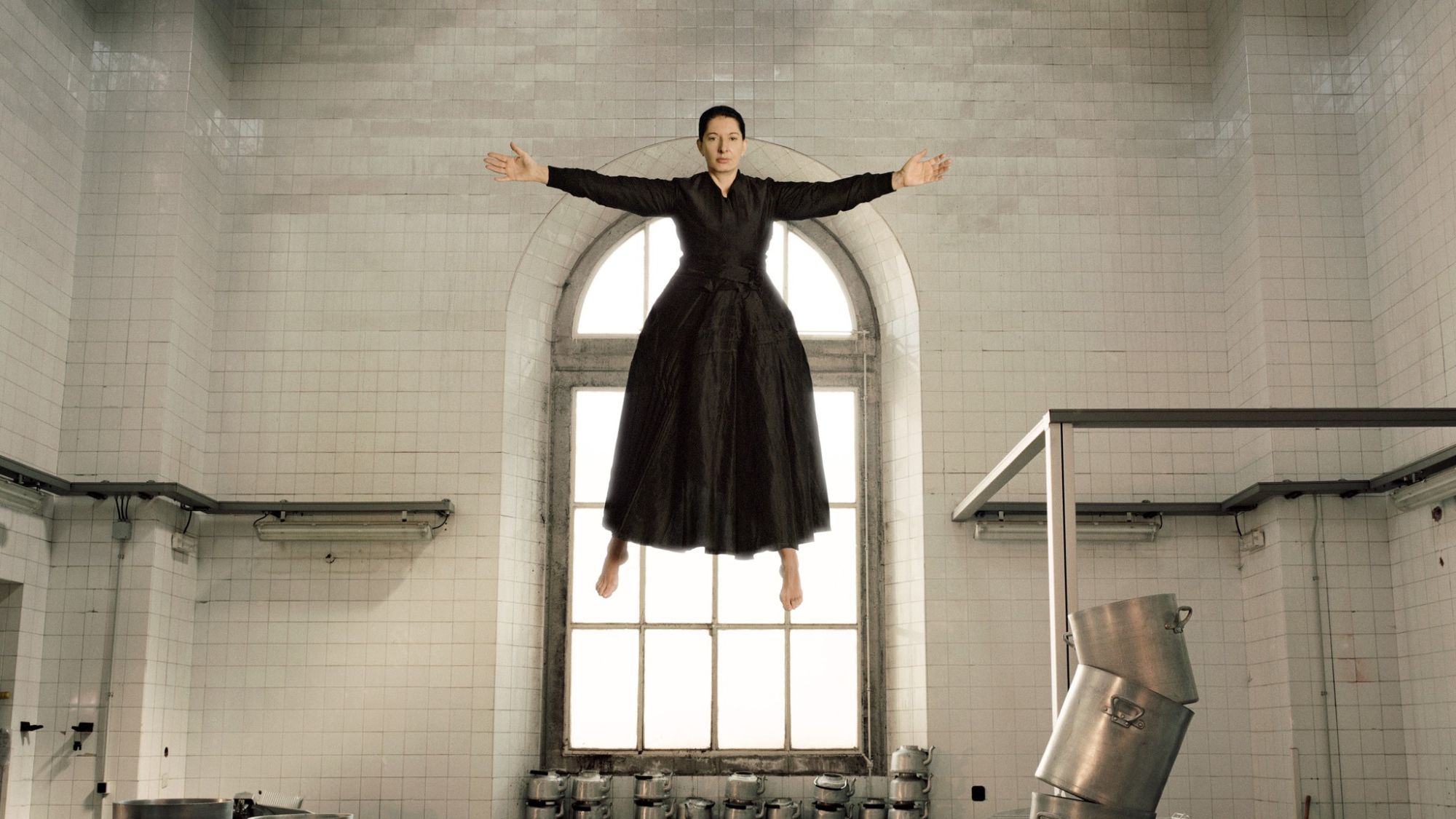Marina Abramović at the Royal Academy review
Exhibition looks back at the spectacular highlights of her five-decade career

A free daily email with the biggest news stories of the day – and the best features from TheWeek.com
You are now subscribed
Your newsletter sign-up was successful
Since the early 1970s, the Serbian performance artist Marina Abramović has "risked her health, her sanity and even her life" in the service of her art, said Adrian Searle in The Guardian. "Performance" is somehow an inadequate word for her work, "a series of self-imposed tests of human endurance and persistence": she has "burned herself, cut herself, drugged herself"; she has provided the audience with a hammer, a saw, chains and a whip, and asked them to do what they want with her; she has sat for 75 days, in silence, at New York's MoMA.
Her "relentless" new exhibition looks back at the spectacular and often terrifying highlights of her five-decade career. The show – shockingly, the first retrospective ever given to a female artist at the Royal Academy – consists of videos and photographs of some of her performances, and re-enactments of others, staged "with the assistance of younger artists she has trained". Now 76, the "grandmother of performance art", as she calls herself, has created a "tremendous legacy" – and this show does it justice.
Born in 1946 to parents high up in Yugoslavia's communist government, Abramović had a very "strict" upbringing, said Ben Luke in the Evening Standard. Her mother was "particularly disciplinarian", her grandmother "devoutly religious". It's difficult not to see this informing the "asceticism, brutality and rigour" of her art. In one 1974 performance displayed in a series of photos, for instance, she sets fire to a wooden model of a five-pointed communist star, then lays down inside it, losing consciousness and having to be rescued. Efforts such as this can be interpreted as attempts to "push the boundaries of her body" into escaping the familial and political confines of her youth. The re-enactments are similarly uncomfortable. One such involves two performers, naked, forming a very narrow doorway through which visitors are invited to pass, brushing against their naked bodies. Doing so is an "unspeakably awkward" experience, but the idea is "a brilliant conceit". Although the show as a whole is "superb", Abramović's later work is uneven – particularly her "woo-woo" explorations of nature and spirituality, which typically use "crystals, stones and metal as conveyors of ancient energies". "Beautifully displayed" though it is, this kind of "nebulous tosh" soon gets tiresome.
The Week
Escape your echo chamber. Get the facts behind the news, plus analysis from multiple perspectives.

Sign up for The Week's Free Newsletters
From our morning news briefing to a weekly Good News Newsletter, get the best of The Week delivered directly to your inbox.
From our morning news briefing to a weekly Good News Newsletter, get the best of The Week delivered directly to your inbox.
The show compellingly recreates Abramović's "ephemeral" art, said Alastair Sooke in The Daily Telegraph. And her early performances, including those with her then-partner Ulay, still feel "radical and courageous": they still have something urgent to say about "the complex relations between men and women" and the "gendered roles that society forces us to play". Yet of late, she has clearly started to believe her own "hype": witness her "inert" sculptures, pseudo-philosophical statements and "modish" twaddle about "wellness". Recent works – Abramović posing with an octopus on her head – seem merely narcissistic, "devoid of risk, with none of the rigorous, visceral, blood-spattered toughness of old". I can't help feeling that hers might be the most "egregious case of an artist, over the decades, losing their way".
Royal Academy of Arts, London W1 (020-7300 8090, royalacademy.org.uk). Until 1 January 2024
Sign up to the Arts & Life newsletter for reviews and recommendations
A free daily email with the biggest news stories of the day – and the best features from TheWeek.com